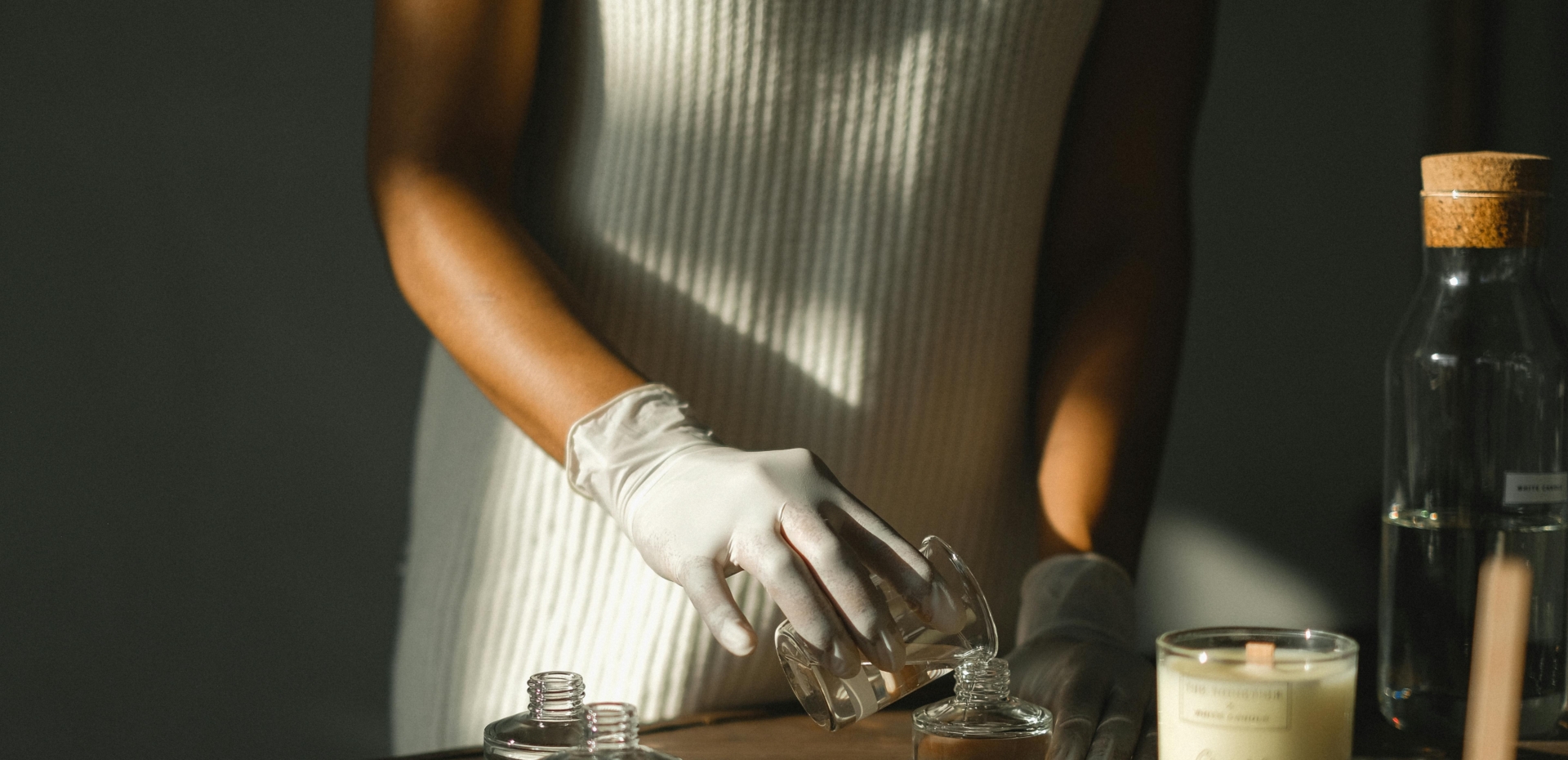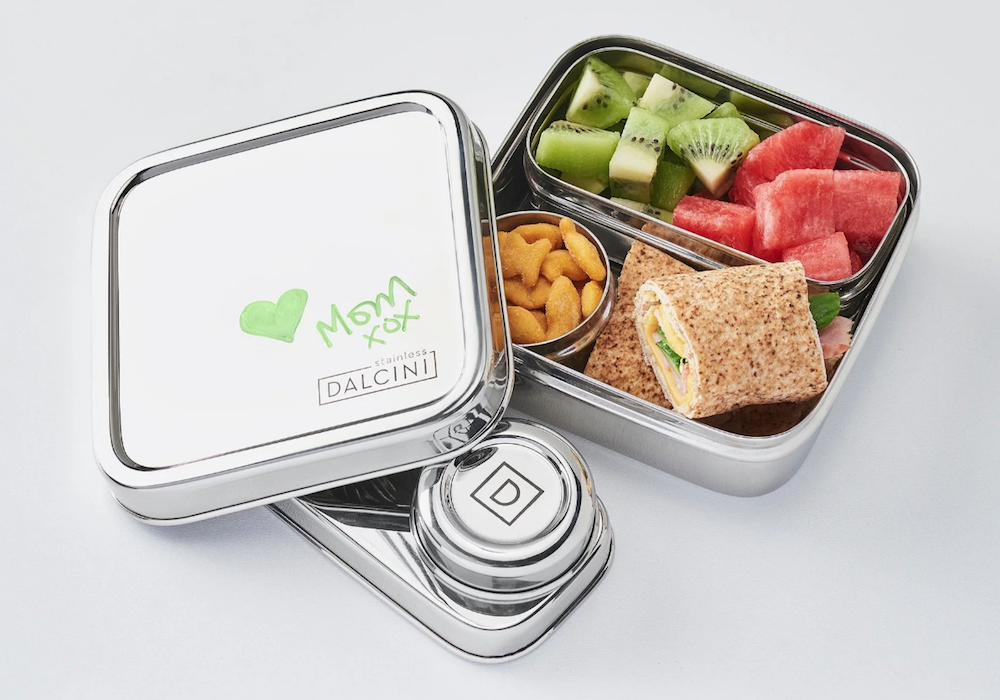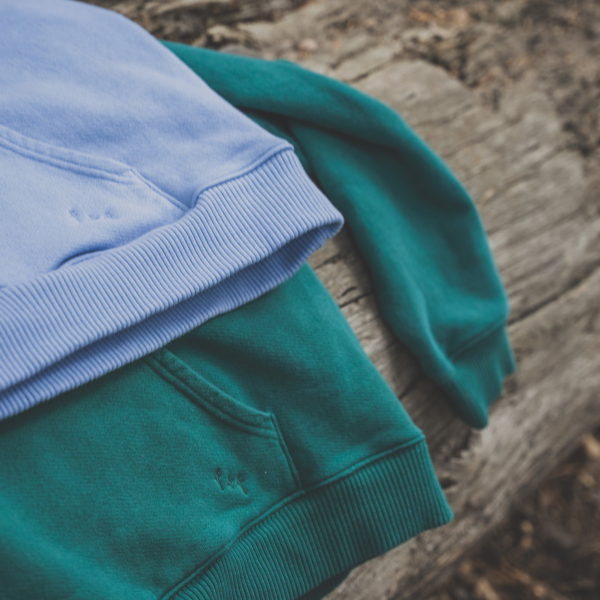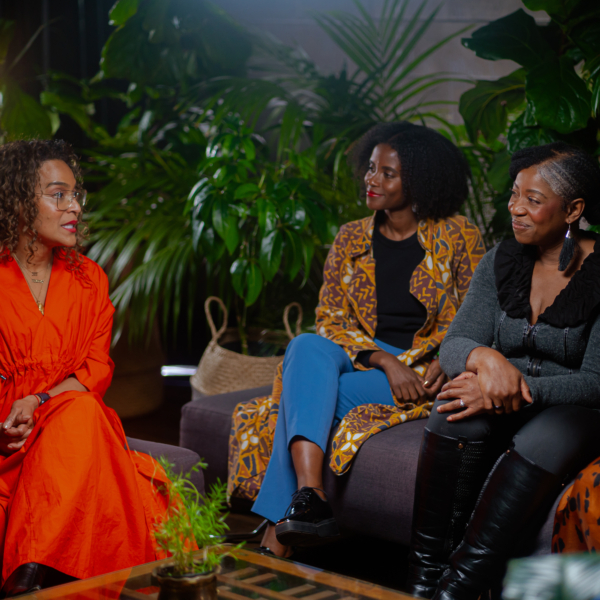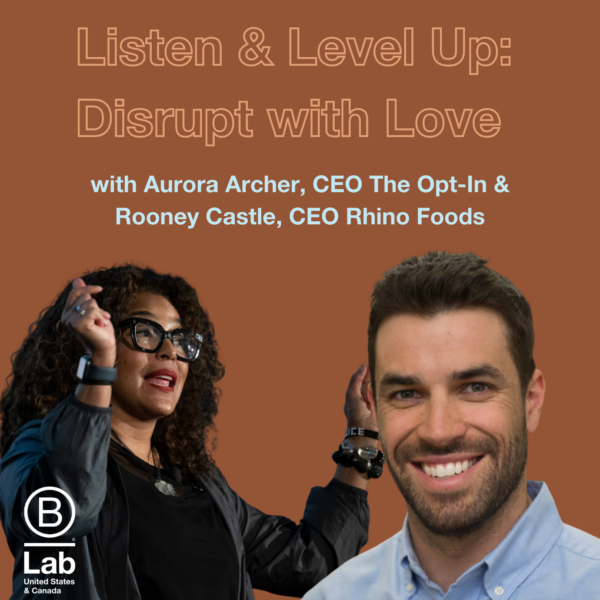Level 4.0: Meet 5 Women of Color Creating Unique Products with Purpose
July 8, 2024
Women Entrepreneurs Build Businesses for Impact and Inclusion: Part Three
Business inspiration can come from many places, and this year’s participants in B Lab U.S. & Canada’s Level program show how identity, community, and purpose combine to create the spark. As they join the B Corp community, their businesses help build a more inclusive and equitable economy — and Level supports them on their way.
Through the Level program, businesses led by Black, Indigenous, or People of Color who also identify as women work alongside consulting organizations to measure and improve their impact, tell their story, adopt legal stakeholder governance, and pursue B Corp Certification. The program builds on the three pillars in B Lab U.S. & Canada’s Theory of Change: climate justice, racial equity, and a stakeholder-driven economy.
This year of Level includes 15 companies from a range of industries and locations in the U.S. and Canada. In the third of a three-part series, we introduce five of the Level 4.0 companies bringing positive change to the world in their own unique ways. They include companies providing nourishing, non-alcoholic beverages; portable, cold storage for breastmilk; sustainable, healthy kitchenware; a low-waste marketplace; and aprons that fight hunger and provide fair trade jobs.
Part one: Meet 5 Women of Color Innovating in the Fashion Industry
Part two: Meet 5 Women of Color Leading Companies That Center Community
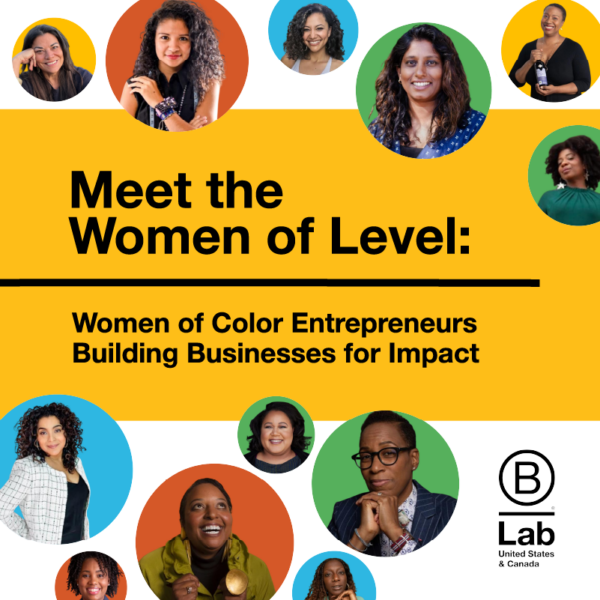
Meet the Women of Level
Learn more about business leaders building a more equitable and just economy in a new downloadable resource from B Lab U.S. & Canada.
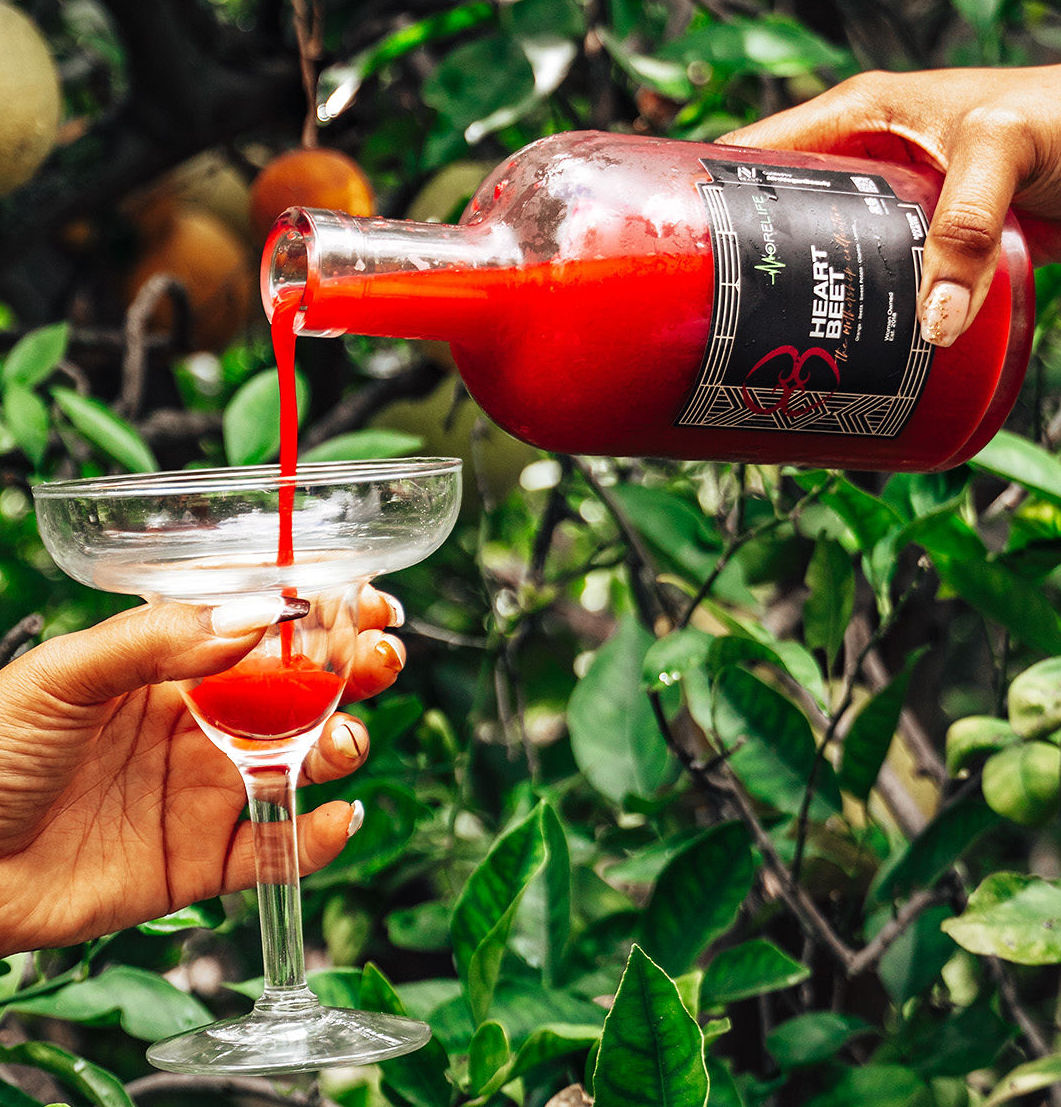
More Life Liquid Heart Beet is flavored with orange, beets, sweet potato, cilantro, and lemon.
Ashley Donaldson, Founder and CEO of More Life Liquid
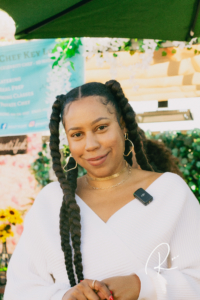
Ashley Donaldson
More Life Liquid, which offers non-alcoholic, non-toxic wellness beverages, has its roots in Founder and CEO Ashley Donaldson’s personal journey of healing and transformation. “Faced with the challenges of alcohol consumption and its impact on my health, I turned to raw, fresh-pressed juice as a means of detoxification and restoration,” she says. “Through a 30-day juice cleanse, I witnessed firsthand the power of juicing to alleviate health issues, shed unhealthy weight, and rejuvenate my body.”
Donaldson felt compelled to share the benefits of juicing with others, and partnered with local fitness centers in Charlotte, North Carolina, to offer juices to clients seeking healing through natural means. As demand grew, More Life Liquid relocated to San Diego, California. In recognition of the issue of alcohol addiction that Donaldson saw in her community, the company later expanded its efforts to include sobriety support. In 2023, More Life Liquid collaborated with wellness influencer Kaori Nik to craft a non-alcoholic collection, offering healthy alternatives in social spaces.
In partnership with local businesses, farms, and wellness professionals, Donaldson builds on her dedication to wellness and sobriety advocacy while helping others pursue healthier lifestyles. “My local community has profoundly influenced my work by shaping my understanding of the challenges and needs within it,” she says. “By being immersed in the community, I’ve gained firsthand insights into the struggles individuals face, particularly regarding health and wellness.”
Donaldson encourages other entrepreneurs launching their own businesses, especially those who are Black, Indigenous, and other People of Color, to stay true to their vision and embrace their unique identity. She says challenges are inevitable and reminds entrepreneurs to stay committed to their mission and prioritize self-care along the way. “And most importantly, never underestimate the impact of your voice and your story — they are powerful tools for inspiring change and creating meaningful impact in your community,” Donaldson says.
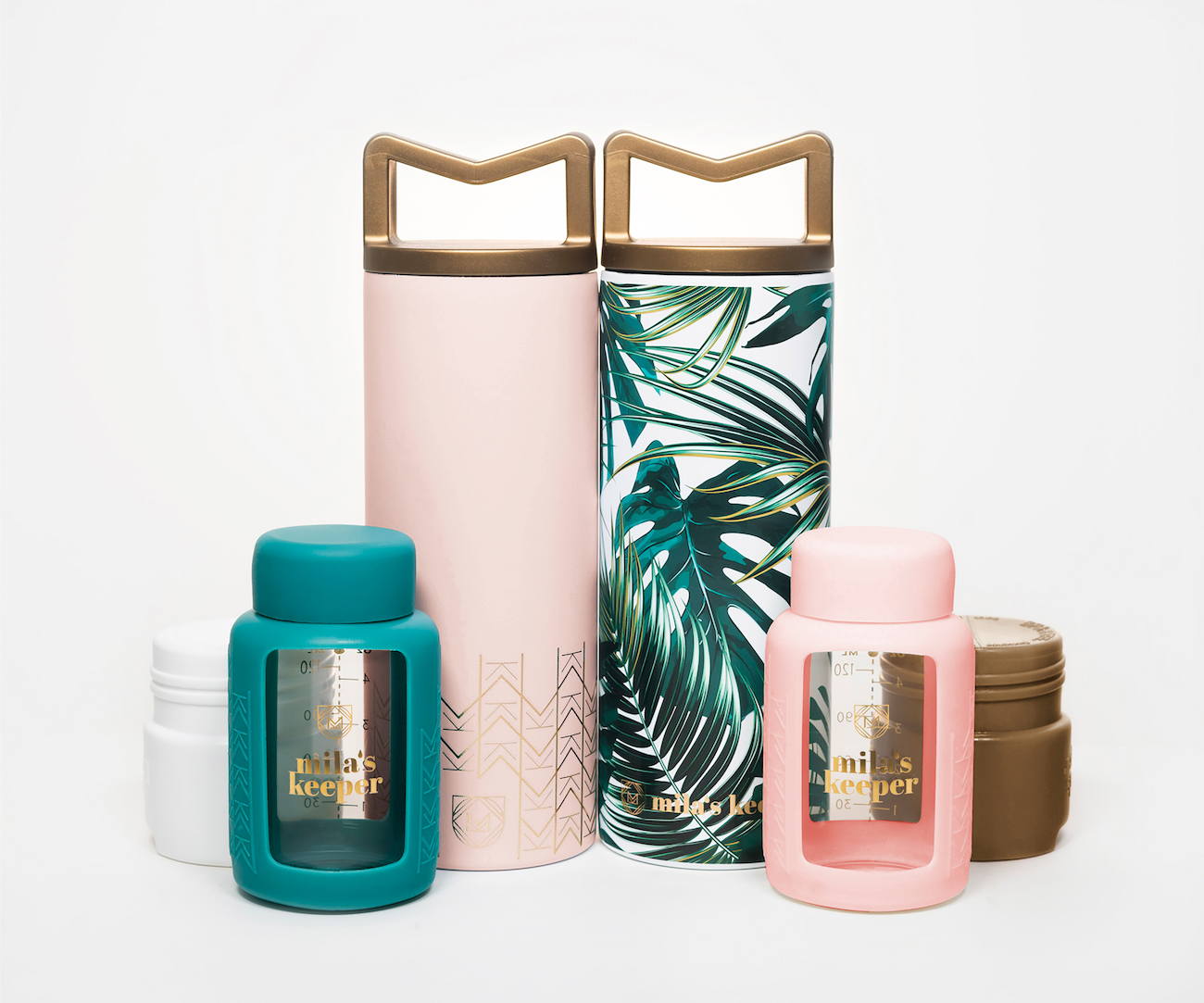
Mila’s Keeper Duo Set includes two portable, insulated breast milk coolers, glass bottles, and ice packs.
Lara Vu, Founder of Mila’s Keeper
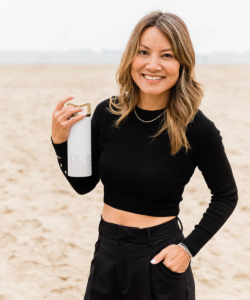
Lara Vu, MPH, CLES
Lara Vu was inspired to start Mila’s Keeper while working on a UNICEF project in Vietnam to support breastfeeding moms returning to work in the world’s largest shoe factory. “When the project failed due to lack of proper breast milk cold storage, I realized then, as a breastfeeding mom myself, that lack of cold storage wasn’t just an inconvenience but detrimental to the longevity of a mom’s breastfeeding journey,” Vu says. “It was then when I realized that moms deserved better, and when we set out to invent the patented MilKeeper, a 20-hour portable, cold storage solution for breast milk.”
Vu’s goal is to provide modern storage solutions that help moms of all socioeconomic statuses thrive during their breastfeeding journey. Her mission has driven her to work harder, better, and faster for her community. To that end, she has started to work with the government and others who are equally passionate about helping moms.
She encourages other entrepreneurs, especially those who are Black, Indigenous, and other People of Color, to keep steadfast as they pursue the difficult work of breaking barriers. “I would encourage you to be prepared for the isolation you may feel when you are the only BIPOC woman for miles in whatever you are trying to accomplish,” Vu says. “Remember that we have both the challenge and the opportunity to break barriers for those that we serve in our business. Go all in with passion as that will give you the confidence to carry you through the tough times.”
Nita Tandon, Founder and CEO of Dalcini Stainless
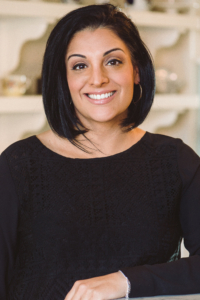
Nita Tandon
Dalcini Stainless Founder and CEO Nita Tandon started the eco-friendly, chemical-free stainless steel kitchenware company in 2015 to address her personal concern with the amount of chemicals, microplastics, and waste in our environment from food storage containers. “I blended my ethnic roots, knowledge of health science, and the practicality of a busy mom to create a line of health and sustainability-focused food storage solutions that are easy to use, easy to clean, easy on human health, and easy on the environment,” Tandon says.
Stainless steel food storage has been used for centuries by people in India, Tandon says. When developing Dalcini Stainless, she looked at traditional designs used over generations. Then, she ensured they were dishwasher-, oven-, and freezer-safe to meet the needs of North American customers.
She says business owners who are People of Color may think they must follow the typical business path to success, but she encouraged them to recognize their own capacity to lead. “BIPOC owners are the leaders in this day and age,” she says. “Many come from countries or cultural groups that have been in existence before North America was created. BIPOC owners are the leaders of today despite where the funds tend to be spent. My advice is to show more leadership, get B Corp certified, and create a new face of business.”
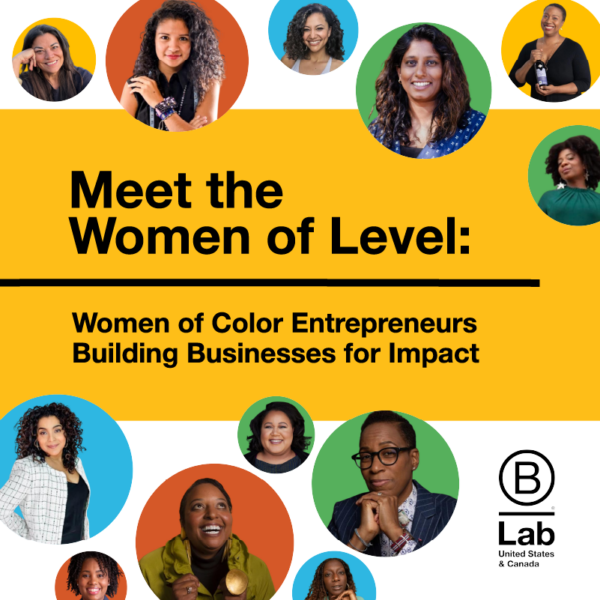
Meet the Women of Level
Learn more about business leaders building a more equitable and just economy in a new downloadable resource from B Lab U.S. & Canada.

Ceres Market promotes sustainable practices like composting and equipping the community with tools to make a positive impact on the environment.
Tatiana Gomez, Founder and CEO of Ceres Market
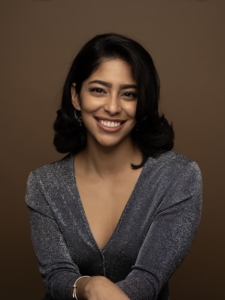
Tatiana Gomez
The desire to start a low-waste marketplace had multiple sources of inspiration for Tatiana Gomez. She says that being a first-generation American of Colombian descent taught her to question U.S. consumer habits and the lack of regulation regarding environmental conservation. However, she found putting her beliefs into practice a challenge. “As an aspiring zero-waste vegan, I found it difficult to buy ethically sourced products that were free of plastic packaging,” she says. “Even the tofu had to come in a plastic tray.”
Gomez’s journey was also influenced by her experience as a certified scuba diver, which helped her realize the importance of ocean health. She learned to appreciate the distant underwater world, another factor that contributed to her decision to go vegan. “I made it my duty to help with the protection of corals and sea animals from human-related pollution,” she says.
Once Gomez made the decision to try a minimalist lifestyle, she knew she had a steep learning curve. However, her passion for teaching others about food production processes, packaging, and waste management fueled her to do something about it. Now, New Jersey-based Ceres Market strives to reduce barriers to low-waste living by developing a marketplace that makes it easy to shop for curated eco-friendly products, rent appliances and tools, and learn to lead a more sustainable lifestyle.
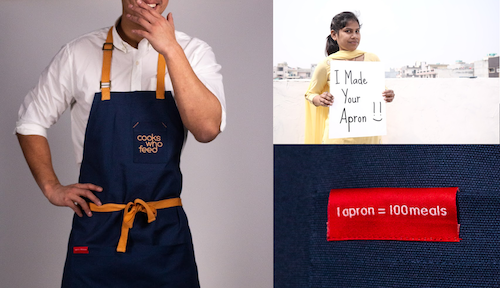
Cooks Who Feed creates aprons and other textiles; each apron purchase helps fight hunger and provide fair trade jobs.
Seema Sanghavi, CEO and Founder of Cooks Who Feed
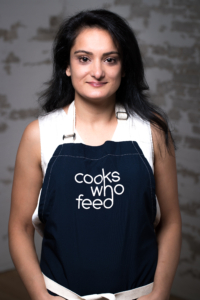
Seema Sanghavi
Seema Sanghavi never set out to start a kitchen textile company. She loves to cook and many of her fondest memories revolve around sharing a good meal. “But as much as food gives me joy, I’ve always been bothered by the number of people who go hungry and do not get to experience food the way that I do,” Sanghavi says. “I struggle to live in this world of feast or famine.”
In 2016, she had an experience that would set her on the course to founding her company, Cooks Who Feed. Sanghavi visited an organization in India that provided paid training and fair, safe work to marginalized women. That experience compelled her to help in some way so that more women could have the same opportunity. “At that point in time, I was not sure how I could be of service but I knew I could not go back to Canada and forget what I had seen,” Sanghavi says.
She ended up combining these two experiences into a charitable company. Cooks Who Feed creates aprons and other textiles, with each apron purchase supporting 100 meals for those who would otherwise go hungry. The production of aprons and other textiles also provides fair trade jobs for women in India. Over one-third of the company’s profits go to its charity partners to fulfill its model of one apron = 100 meals, with more than 1.7 million meals provided so far.
Sign Up for our B The Change Newsletter
Read stories on the B Corp Movement and people using business as a force for good. The B The Change Newsletter is sent weekly.
